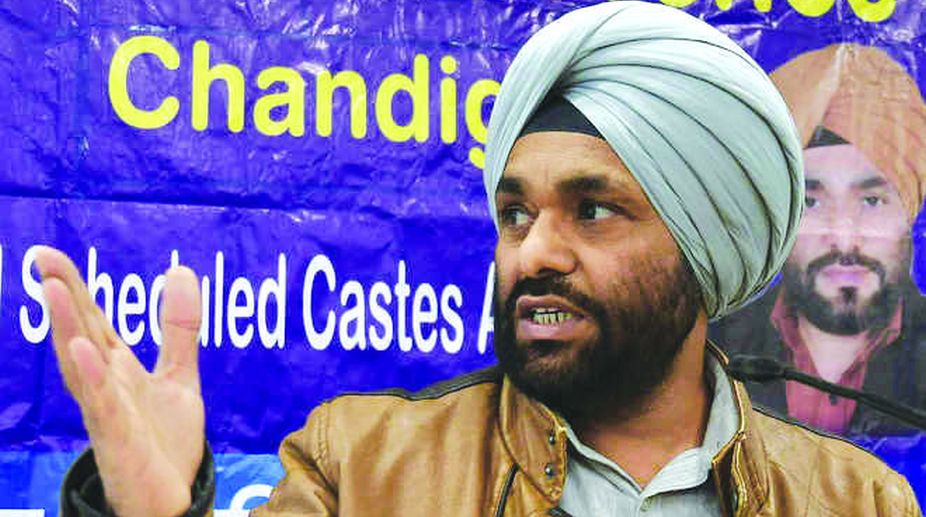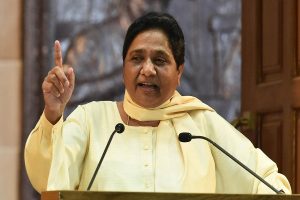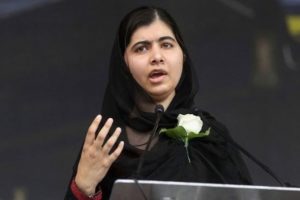Founder of socio-political organisation National Schedule Castes Alliance (NSCA), PARAMJIT SINGH KAINTH, 56, is fighting for the rights of the scheduled castes (SCs) in Punjab.
A former leader of the Bahujan Samaj Party and of the Aam Aadmi Party (AAP), Kainth believes the SC community is being discriminated against and suffers inequalities even 74 years after Independence. In an interview to RANJEET JAMWAL, Kainth said there has been no difference at the ground level in Punjab despite Charanjit Singh Channi, an SC, becoming the Chief Minister.
Advertisement
Q: Despite having the highest SC population in the country, Punjab has now got its first SC Chief Minister since inception. What do you think are the reasons for this long delay?
A: Since 1966, all major political parties have ‘used’ the SC community as political pawns by promising freebies and selling lofty dreams. Never could any party envisage a SC as their party leader to guide the state because of the inherent casteism prevalent both overtly and implicitly.
The Congress being in an organisational predicament this year after Captain Amarinder Singh’s unceremonious ouster chose Charanjit Singh Channi as CM. Promises made for a SC CM or Deputy CM by parties like BJP and SAD also provided the Congress with an opportunity to present Channi as CM, albeit for just a few months and there is no guarantee on his position after the 2022 election. Another reason for such a long delay is the non-existence of a strong SC leader.
Q : Do you think Channi as the SC Chief Minister will help the ruling Congress win over nearly 32 per cent of the SC population in Punjab?
A : In my opinion, this might have been the case if the Congress had not created confusion by projecting Navjot Singh Sidhu and Channi alternatively as CM candidate for 2022 during their various media interactions. The Congress has been unclear on whether they can guarantee Channi as CM if they win the 2022 elections and this hesitancy on the part of the Congress is noticed by the people. I think the Congress is just using Channi as a tool to advance its agenda for 2022. Repeated interference by Sidhu also creates much confusion on who actually is in charge.
Q : It is said Punjab SCs failed to get their “political due” as they are divided into several castes and subcastes.
A : The SC community in Punjab unfortunately is leaderless. Every subcaste has its own multiple self-proclaimed leaders who indulge in the politics of exclusivity. The issue of ‘Reservation within Reservation’ is one such controversial decision which was taken by the Congress regime in 1975 and converted into an act in 2006. It has created fissure lines between the sub-castes. None of the sub-castes in the SC community are able to create a united front for the welfare of the SCs.
Q :Despite a SC becoming the CM, do you think things are changing or will change for the SC community at the ground level?
A : To be very precise ‘No’. There is a huge section of the SC community which is feeling ignored even after the elevation of Channi as the CM. The schemes which he has advertised or announced have had no specific interventions for the SCs. Even in his speeches, the SC community features much less than what was anticipated. It seems he fears alienating the general community, and clearly in preventing such a notion he has not taken up the SC issues at all. I think his political ambitions are much more important for him than the community’s welfare.
Q: How will you describe the state of SCs in Punjab?
A : Socially, politically and especially economically, the condition of SCs is marginally better than in other states. But instances of social boycott, atrocities, crimes, rape and exploitation in rural areas especially of agricultural labour are some examples of hardships that the community faces on a regular basis.
The condition can improve if some credible leadership takes the mantle of social and political change but this seems a rather far fetched dream at this moment. SCs are being subjected to religious conversions (Christianity) in the border areas and the people who convert are not told that the conversion also takes away their opportunity to utilise reservations and other benefits. This is also a growing worry.
Q: Is the caste system still prevalent in Punjab? If yes, in what forms?
A : Definitely yes. The most recent example which I can quote is of the situation with the DGP Iqbal Preet Singh Sahota versus Sidhu. The DGP, an efficient officer and an honest, religious Sikh man, is maliciously targeted by Sidhu on baseless allegations of misappropriation in sacrilege investigations by him.
The sole reason to my understanding is the DGP is a SC and to some sections of society an SC CM and SC DGP are completely unacceptable. Instances of SC women paraded naked in villages, grooms not allowed to ride a horse on their wedding day, children raped and families in villages boycotted are menacingly frequent. Even when the Akal Takht Jathedar gave the proposal of a single gurudwara instead of different gurudwaras of different communities in a single village, no major approval was given by the public.
A village in Punjab is marked by houses of Jatt Sikh, Ramgarhia Sikh, Majhbi Sikh, Ravidasia Sikh and other types of Sikhs clustered in groups. If this is not casteism, I don’t know what is.











